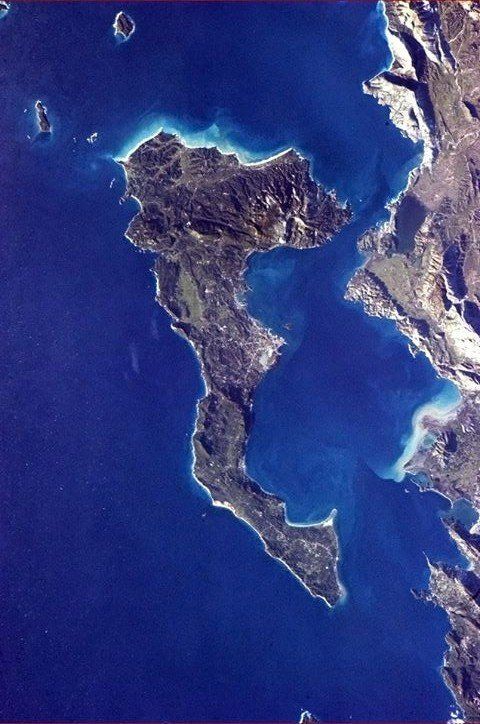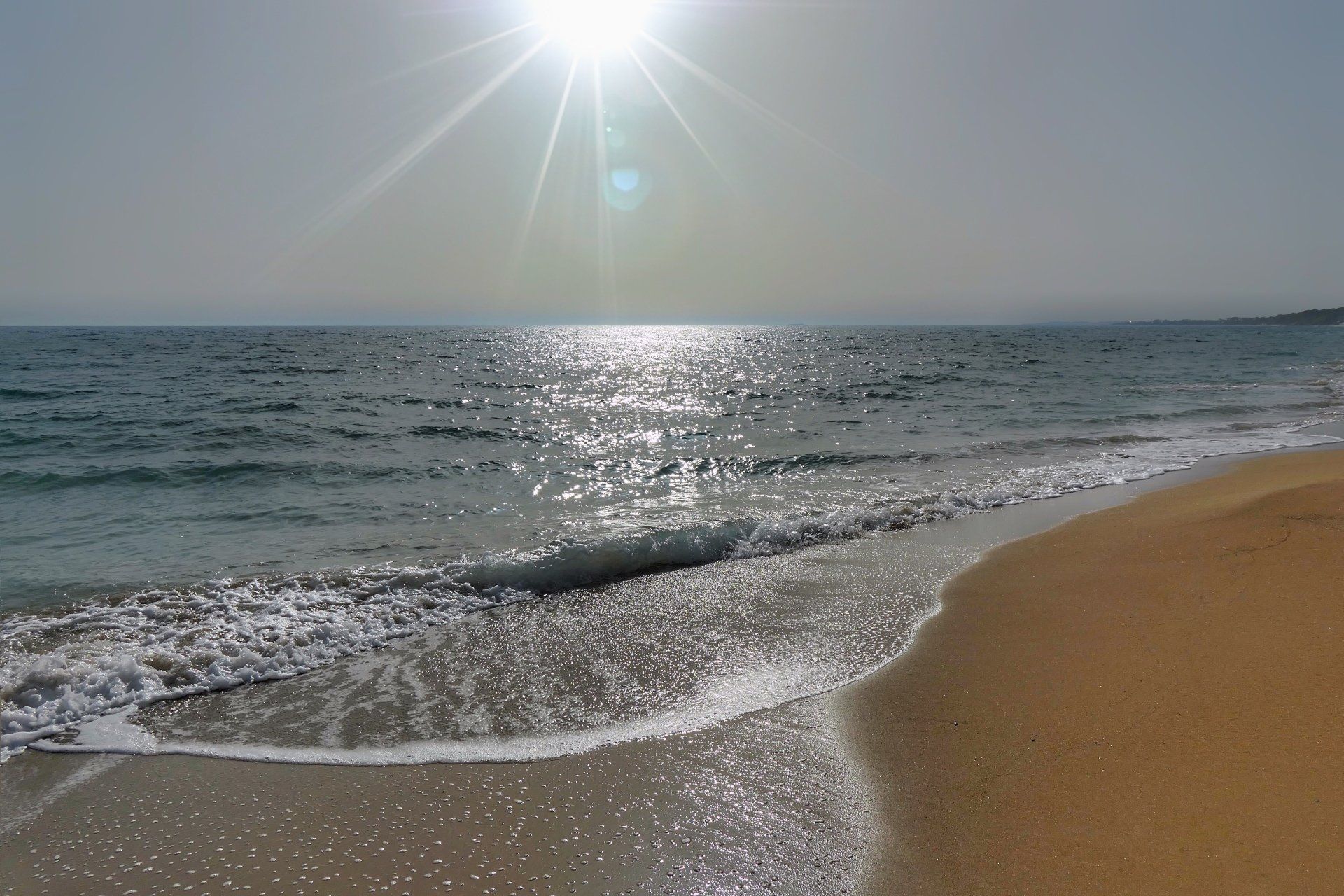One famous Island with many names
- by Costis Panaretos
- •
- 08 Mar, 2019
- •

Scheria,
Drepani, Island of the Phaeacians, Corcyra, Corfu are few of the names
given to this marvel of Mediterranean Sea. An island with so many names cannot help but to be a place that
ignites curiosity, the desire for exploration, the need to make contact. An
Island with so many virtues naturally creates the need for millions of people
to visit, to meet its varied aspects and in their turn become part of its
history.
Corfu is an important geopolitical crossroad for over
700 years. For the past centuries it has inspired travellers, poets, merchants,
painters, generals, writers, Empires. Depending on
one’s perspective, individuals could recognize different elements of the
island’s magic.
‘Scheria’, the eternal coastline as it has been described by Homer, for those
who have navigated around the coast by rowing, sailing and later in motorized
boats.
Island of the
Phaeacians for those who experienced the hospitality of its people and of the
place itself. The people of the island
were known of the protection they offer over the travelers with most famous
cases the safe harbor they provided to the Argonauts and later to Odysseus
wandering soul.
A name given because of its curved shape, is Drepani (Sickle island), some say
that it is because the island itself is the sickle that Cronos used in order to
overpower the primordial god Ouranos (Sky Father) and become the ruler of the
second order.
Up until now there is the misconception that the name Corfu refers to whole island. But Corfu is only a name acknowledged by the admirers of the main town. In the corfiot dialect, Corfu, means ‘two peaks’ in dedication to the two fortresses that protected the lively center of trade and intercultural fusion during the long Venetian era. When the island was a British protectorate, the British cartographers copied the Venetians and spread the word! But the real name has a different story….
The Doric name Corkyra, will come forward only to those who have started to reveal the island’s secrets. These are the lovers of nature, who decide to leave behind a few drops of sweat, who will hear her sounds, who will caress her beauties with their eyes, who desire to feel the outline of her curves under their feet, to inhale her aroma, to taste her crops, there is no other choice than the name Corkyra, the Mermaid daughter of the river Asopos and his wife Metopi, the daughter of the dragon Ladonas.
The Mermaid
Corkyra awakened the passions of Poseidon, Ruler of the Seas, God of Olympos.
Poseidon transformed himself into fresh water and maneuvered upstream the
Asopos River until he reached its source and abducted Corkyra. In the search
for the most appropriate love nest, Poseidon arrived at an enticing island in
the north Ionian Sea. When Corkyra stepped onto the land, she integrated with
the island and molded it to her figure. She gave birth to her sons and
daughters and eventually gave the name that when it Romanized, became the one
that it is still known today, Kerkyra.
Welcome to Kerkyra. A journey begins..


Bear in mind that Greece is currently on the UK’s amber list for travel, meaning that passengers from Greece have to self-isolate at home for 10 days on arrival back in the UK.
What vaccination proof do I need to travel to Greece?
Greece is open to fully vaccinated Brits, so visitors need to prove that they’ve had both doses of an approved jab at least 14 days before travel. The type of proof varies based on which nation of the UK you’re a resident in:
- England: citizens can prove their status using the NHS app, or a written letter. You can’t get proof of vaccine from your GP. Instead, you should request it by phoning 119
- Scotland: download a vaccination status letter from the NHS Inform patient portal, or request it by post via the Freephone Covid Status Helpline on 0808 196 8565
- Wales: request a certificate by calling 0300 303 5667. Note that it can take up to ten working days for a certificate to arrive. The Welsh Government is currently in talks with the UK government to allow Welsh citizens to use the NHS app for proof of travel
- Northern Ireland: the Northern Ireland Executive is currently developing a vaccine certification programme for its citizens.
You can’t use your appointment letters as proof of vaccination. You must either use a written letter from the NHS, or a digital product such as the app.
What vaccinations does Greece accept?
Greece is open to anyone who has had one of the vaccines approved by the European Medicines Agency (EMA). This includes the four vaccines approved for use in the UK: BioNTech and Pfizer, Moderna, AstraZeneca and Johnson & Johnson.Do I still need a test before entering Greece?
No. If you’ve had both doses of an approved vaccine, you won’t need to produce a negative test result. Note that arrivals may be asked to undergo a rapid COVID-19 test on arrival. This is determined at random, based on the QR code on the back of your PLF. If you’re selected, you will need to isolate until the results come in: this can be up to 24 hours. If you test positive, you and your party will need to isolate for at least 10 days in an approved quarantine hotel. The cost of this is covered by the Greek state.Are there other travel restrictions in place?
Yes. Although Greece is open to vaccinated visitors, there are a few extra preparations. In addition to bringing your proof of vaccination – or negative test result – you will also have to:
- Fill in a Passenger Locator Form (PLF) before travel. You need to do this before you enter and again before you leave the country
- Wear a face mask while on a plane, bus, train or ferry travelling to, from or around Greece. You also need to keep your mask on at the airport
- Comply with all instructions given by the Greek authorities.
Do I need to quarantine when I get back to the UK?
Yes. Greece is currently on the amber list for travel, which means that there are travel restrictions in place upon your return. Before you come back from your trip to Greece you should:
- Take a COVID-19 test within 72 hours of your flight, even if you’re vaccinated
- You need to make two COVID-19 tests, once you arrive in the UK. One will be on Day 2 and the other one on Day 8 after your arrival
- Complete a passenger locator form (PLF).
Once you arrive in the UK, you will need to:
- Quarantine at home or in your accommodation for 10 days.
- Take a COVID-19 test on or before day two, and again on or after day eight.
- If you live in England, there’s the option to end quarantine on or after day five through the Test to Release scheme.
Note that the UK’s traffic light system is reviewed every three weeks. Greece could be moved to the green or red list, depending on case levels. You can keep up with the latest status via the FCDO’s official website.


